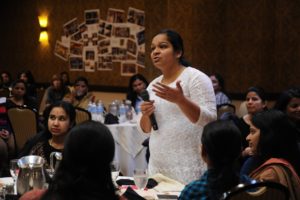In celebration of the Amoris Laetitia Family Year, Universitas republishes the texts of the “Executive Summaries,” one-page evangelization flyers initiated by Dr. Raul Nidoy, faculty member of UA&P, Director of Formation of Parents for Education Foundation (PAREF) and author of Jesus-Centered: Guide to the Happiest Life. The leaflets, which have been printed and shared thousands of times here and abroad, contain key points of Catholic doctrine on topics such as family and chastity, social responsibility, the foundations of the faith, and encountering Jesus. Schools, parishes, and organizations have used the leaflets as a tool for promoting Church teachings. The Executive Summaries can be downloaded here.

1.Do good and avoid evil. Each one is answerable for the moral choices he makes. Choose politicians with the character, public policy and capability that will do good. Avoid politicians who will do evil.
2. Every citizen is obliged to do as much good to society as he can. It is good to vote for politicians who will work for the common good and do much to all using good means. It is good to encourage, support and vote for such politicians, and to help foster the growth of many such politicians.
3. It is good to oppose evil. And very good to oppose public policy and politicians whose actions or inaction will spread evil.
4. Never do evil in order to do good. A good end never justifies evil actions. A good end for society never justifies using immoral means to achieve that end. It is evil to steal, kill, lie and promote sexual disorders in order to “improve” society.
5. It is evil to directly cooperate in evil.
It is evil to vote for a politician who is in favor of intrinsically evil actions, such as abortion, contraception, divorce, devaluation of marriage and the family, murder, violation of human rights, etc. if the voter’s intent is to support these actions. In voting this way, one would be guilty of grave social evil by formally cooperating in that evil.
6. One is allowed to vote for a politician with an immoral public policy on two conditions: (1) If one rejects that immoral policy and (2) if one votes for that person for other morally grave reasons that are proportional to the immorality. If one’s reason for support is not proportionate to the great evil that will be done, then one will somehow be guilty of this evil.

7. What to do when all candidates are in favor of an intrinsic evil: one may decide (1) not to vote for anyone, or (2) to vote for the candidate who is considered less likely to push for immoral actions and more likely to work for the common good and foster moral values. This choice is a matter of doing good by limiting the evil that can be done by the other candidates if they were elected.
8. Not all actions and policies have the same moral value. Some actions and policies are better than others. Immaterial, interior and spiritual things (values and morality, education, human life, religion, human rights, culture, serving the poor and the weak) are more important than physical, material things (economic wealth). Foundational for society are: (1) respect for human life in all stages. (2) strengthening marriage and the family, (3) upholding truth and justice, (4) care for the poor and the weak, (5) respect for rights and freedom, (6) fighting unjust inequalities and corruption, and (7) promotion of virtues.
9. Prudence is a key virtue to practice. Prudence means to discern what is truly good and choosing the right means to achieve it. It implies an honest, objective and diligent study of the facts about the person and his past performance vis-à-vis the key results expected of him. Because of the great influence of an elected official on society, it is evil to make a hasty, emotional, self-interested, and purely partisan choice in such a grave matter. It is important to reflect and make prudent decisions, while at the same time respecting the pluralism of legitimate political opinions given the varying circumstances and specific situations, and the limits of politics as the art of the possible.

10. Respect for the dignity of the human person is the foundation of all morality. Everyone is called to serve each person and all persons. Each one has a duty to participate in socio-political action as much as he can to create a more humane, just, and peaceful society that will do good for each human being.
This guide is based on the document, Forming Consciences for Faithful Citizenship, by the USCCB.
Please share this post or print copies of this and distribute generously, or sell with or without profit.
Banner photo by Tara Winstead from Pexels.
Related articles:
Civic Education: An Imperative of Higher Education
Intersubjective Judgment: Key to Reasoned Dialogue
Leave a Reply